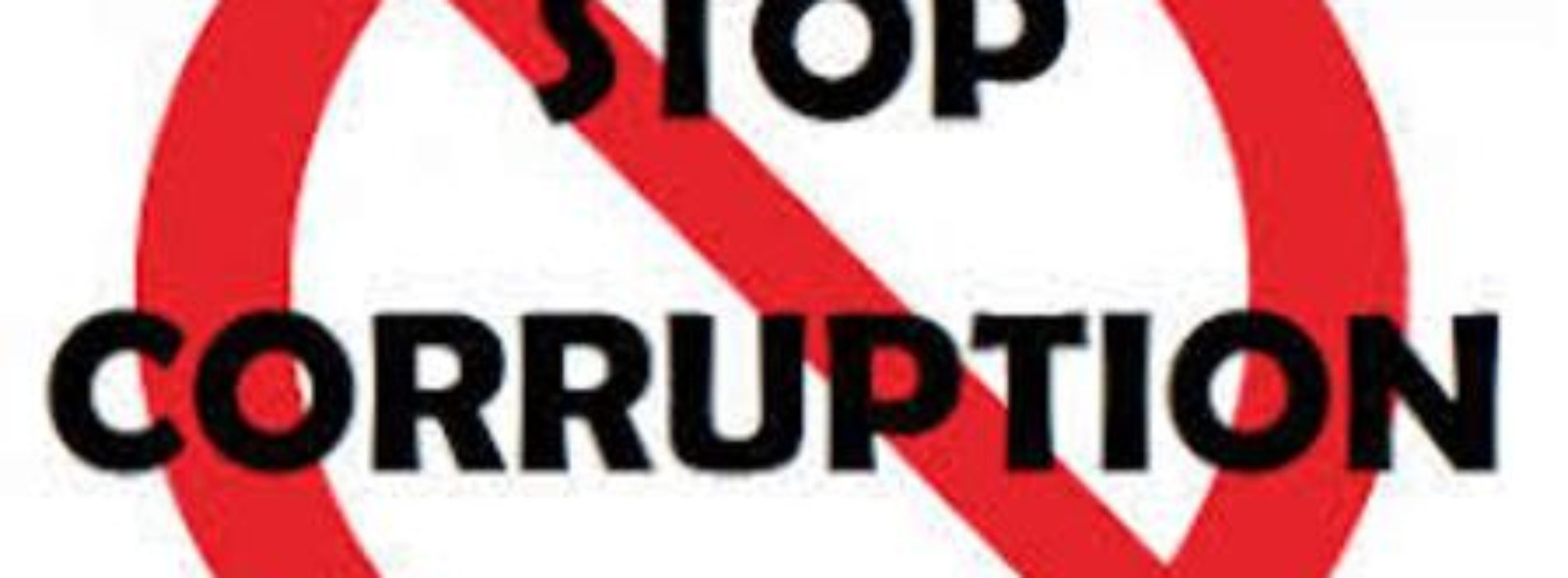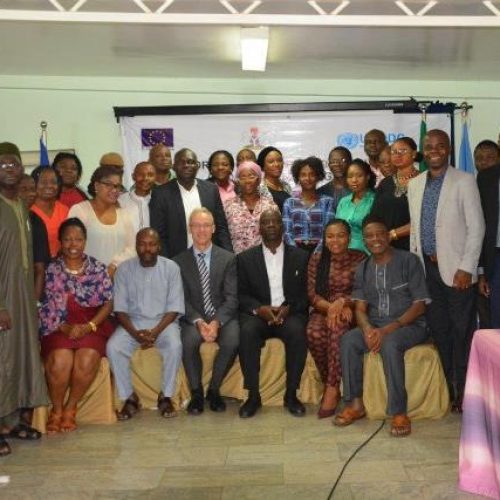Nigeria, UNODC present 2nd survey report on corruption at UN Convention
The Second Survey on Corruption in Nigeria has been presented by the Federal Government in partnership with the United Nations Office on Drugs and Crime (UNODC) to an international audience including civil society at a Special Event on the margins of the eighth Session of the Conference of States Parties to the UN Convention against Corruption in Abu Dhabi today.
The report which was first presented in Abuja earlier this month, provides a unique insight into the prevalence and frequency of bribe-seeking behaviour experienced by Nigerians, as well as their attitudes towards corruption, their readiness to refuse requests for bribes and to report such incidents to relevant authorities. The report also shines the light on bribery and nepotism in public sector recruitment as well as the phenomenon of vote buying.
Statistician General Dr. Yemi Kale of the National Bureau of Statistic stressed that out of all Nigerian citizens who had at least one contact with a public official in the twelve months prior to the 2019 survey, 30 per cent paid a bribe to, or were asked to pay a bribe by a public official. This means that, although still relatively high, the prevalence of bribery in Nigeria has undergone a statistically significant decrease since 2016, when it stood at 32.3 per cent.
The 2019 survey shows also a notable increase in the overall proportion of Nigerians who had at least one contact with a public official in the 12 months prior to the survey. This can be seen as a positive sign for the provision of public services in Nigeria. Healthcare professionals, namely doctors, nurses and midwifes, and public utility officials are the two types of public officials with whom the largest share (31 per cent each) of Nigerians had at least one contact in the 12 months prior to the 2019 survey. Police officers came a close third, with 30 per cent.
Most encouragingly, the prevalence of bribery in relation to several types of public officials has decreased significantly since 2016. The greatest change is in relation to police officers, meaning that the share of people who paid a bribe to a police officer out of all those who had at least one contact with a police officer in the 12 months prior to the 2019 survey decreased from 46 to 33 per cent. Out of the total of 17 types of public sector institutions that were specifically covered by the survey 10 showed significant improvements in terms of prevalence of bribe seeking behavior, while only one agency showed a deterioration.
The 2019 survey also showed improvements in particular among young people’s attitudes towards corruption with 60 per cent amongst them considering corruption never acceptable, as opposed to 58 per cent in 2016. Overall, Nigerians seem to have become more willing to refuse requests for bribes, with 19 per cent of the survey respondents indicating that at least on one occasion during the past twelve months they had not refused to pay a bribe when asked to do so. At the same time, public officials appear less emboldened to request bribes with 60 per cent of the bribes having been paid after a direct demand of the public official down from 66 per cent in 2016.
Ambassador Vivian Okeke, Nigeria’s Permanent Representative to the United Nations Organizations in Vienna opened the special event by emphasizing the need to assess the impact of government effort through evidence-based surveys. She highlighted that data collection was one of the areas that needed improvement in the fight against corruption in Nigeria. She recognized the high-level commitment demonstrated by the present government which contributed to some of the positive results highlighted in the report
In his welcome remarks, the Honorable Attorney-General of the Federation and Minister of Justice, Abubakar Malami SAN, expressed his gratitude to the National Statistical Bureau and international partners like UNODC in providing the necessary data analysis to help review the impact of government efforts as well as to further improve performance towards the achievement of a corruption free Nigeria.
“Beyond allowing us to assess our past performance, the report identifies some crucial policy implications of the data which I am confident will help us to further sharpen our policies and interventions, to prioritize our efforts and resources in the fight corruption and to achieve, ultimately, better anti-corruption results for all Nigerians,” he said.
Ibrahim Magu, Acting Chairman of the Economic and Financial Crimes Commission (EFCC) represented by the head of Legal and Prosecution, Kabir Latona stated the data had showed positive indicators in several areas but acknowledged there was still room for improvement in the fight against corruption.
He outlined some of the efforts embarked by the government through the EFCC in combatting corruption to include policy initiatives like the open treasury portal, beneficial ownership register, and the successful investigation, prosecution and adjudication of several politically exposed persons.
Professor Bolaji Owasanoye, Chairman of the Independent Corrupt Practices and other related offenses Commission (ICPC) represented by Adesina Raheem also reacted to the data stressing the importance of implementing the recommendations emanating from the survey.
Hermione Cronje, Head of the Investigating Directorate, National Prosecuting Authority, South Africa expressed the interest of South Africa to undertake a similar survey with a view to being able to better determine the actual impact of its anti-corruption efforts. She stated her willingness to work closely with the relevant Nigerian authorities and learning from their experiences in conducting such experience-based surveys.
Oliver Stolpe, UNODC Country Representative observed that while the prevalence of administrative, mostly low-value, bribery has decreased, the survey suggests that moving forward greater efforts might be needed to eradicate small scale corruption typically committed by certain types of public officials which continues to have a profound effect on the lives of Nigerians. He further stressed that the survey had identified several such policy implications which had the potential to further enhance effectiveness and benefits of the fight against corruption for the people of Nigeria.
About author
You might also like
UNODC annual media workshop on anti-corruption ends
● Participants urge media to avoid sensationalism while reporting anti-corruption issues The 3-day annual annual media workshop on anti-corruption organised by the United Nations Office on Drugs and Crime (UNODC)
ICPC’s resumes trial-within-trial of corruption case against own dropped Board Nominee
The trial of a former Chairman of Kwara State Polytechnic Governing Council, Dr. Saadu Ayinla Alanamu has resumed before Justice Mahmud Abdul Gafar of the Kwara State High Court
State College, Ikot Ekpene Wins ICPC Secondary Schools Anti-Corruption Debate
State College, Ikot Ekpene Wins ICPC Secondary Schools Anti-Corruption Debate in Akwa Ibom The Anti-Corruption Debate for Secondary Schools organised by the Independent Corrupt Practices and Other Related Offences Commission






0 Comments
No Comments Yet!
You can be first to comment this post!